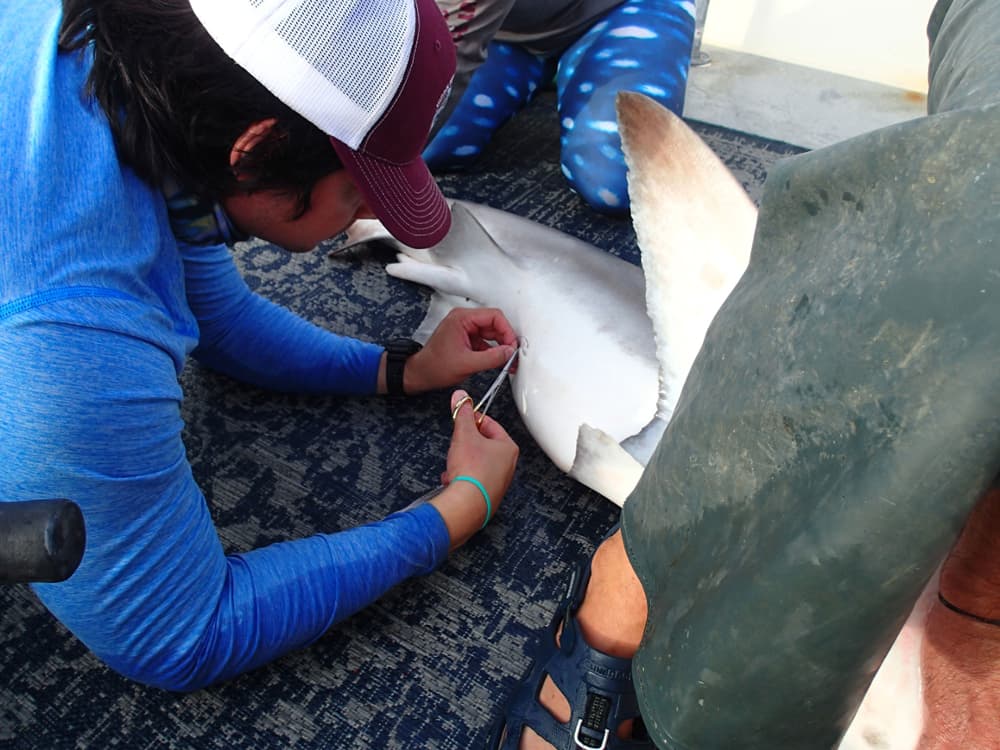PhD Candidate Brett Sweezey Will ‘Save Our Seas’ With Keystone Grant Award
May 3, 2023
Tweet
By Taylor Bounds, Content Specialist
Texas A&M University at Galveston PhD student Brett Sweezey ‘26 was recently awarded the Save Our Seas Keystone Grant for 2023. This international grant supports projects focusing on the research, conservation and education of threatened marine wildlife and their habitats and is typically awarded to researchers studying elasmobranchs, the subclass of fish that includes sharks, skates and rays.
Sweezey’s goal is to develop a new methodology to estimate how high or low an animal is in the food chain, or trophic level, for silky sharks, sandbar sharks and scalloped hammerhead sharks at the Flower Garden Banks National Marine Sanctuary. The only national marine sanctuary site located in the Gulf of Mexico, Flower Garden Banks National Marine Sanctuary is made up of 17 banks, all between about 80 and 125 miles from the Texas shore.
“In order to develop efficient conservation and management strategies to protect globally declining shark populations, it is important to understand the direct ecological influence sharks play in marine food webs,” said Sweezey. “However, due to the remote and isolated nature of the Flower Garden Banks, our understanding of predator-prey relationships between sharks and other species within this marine sanctuary is surprisingly limited.”
By using dried blood spot sampling, Sweezey’s proposal aims to develop a better method for data collection. Used for data collection in other species and regions of the world, this method minimizes the amount of stress an individual animal experiences during the capture-and-handling process while achieving the same results. This sampling method also eases storage needs – because samples can be collected and stored at room temperature, removing the need for refrigeration. Current collection methods require immediate freezing, which can prove difficult when working in the field.
“These methods should expand on our ability to sample species in resource-limited settings, reduce both logistical and financial challenges and increase the ecological knowledge of shark species in areas of high ecological importance,” said Sweezey. This grant is fundamental in more efficiently collecting information about these sharks, and in turn, we will be able to develop more effective conservation and management practices.”
Sweezey’s project is estimated to take place over two years; he was granted initial funding of $17,000 and will have to check in with the grant program at the end of the first year to receive the remaining $14,000. The two-stage application process was extensive and focused on the project description and goal, including budgeting and the timeline of data collection, analysis and final publication. Once accepted, Sweezey then had to submit another proposal, providing specific details on the background and purpose of the studied animals and their environment and the methodology of how the project will be run, developing a web profile for communicating these results to the public and identifying the final deliverables for the project.
###
Media contact:More:
Read more about Health & Environment
Read more about TAMUG Research
Read more about Science & Technology
Read more about Foundational Sciences
Read more about Marine Biology
Read more about Marine Sciences